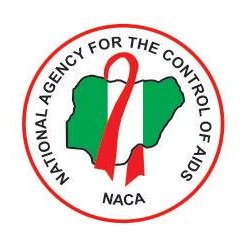In a press briefing held in Abuja to mark World AIDS Day, the National Agency for the Control of AIDS (NACA) revealed that an estimated 1.8 million individuals are living with HIV in Nigeria.
Out of this figure, approximately 1.63 million are currently receiving Antiretroviral Therapy (ART), as stated by Dr. Gambo Aliyu, the Director-General of NACA.
World AIDS Day, observed annually on December 1, serves as a global initiative to prevent new infections, enhance HIV awareness, support individuals affected by HIV/AIDS, and commemorate those who have succumbed to the disease.
This year’s theme is “Communities: Leadership to End AIDS by 2030.”
Dr. Aliyu acknowledged the progress made by Nigeria in combating HIV/AIDS but emphasized that more efforts are needed to meet the target of ending AIDS as a public health threat by 2030.
Nigeria bears the second-largest burden of HIV infection globally. The Director-General highlighted that approximately 58% of those living with HIV in Nigeria are female, while 42% are male.
Furthermore, Aliyu underscored Nigeria’s responsibility for about 30% of the global gap in achieving the goal of eliminating mother-to-child transmission of HIV.
Despite recognizing the contributions of development partners and global communities, he reiterated the government’s commitment to achieving the global target of ending AIDS in Nigeria by 2030.
Expressing appreciation for community contributions, Dr. Aliyu emphasized the importance of community leadership in various roles, including policymakers, service providers, religious and traditional leaders, women, men, young people, vulnerable groups, civil society, and those affected by HIV.
He called for the mobilization of community leaders to promote gender-equitable social norms and equality in the uptake of HIV prevention, treatment, and care services.
The Director-General stressed the need to address social and structural factors contributing to the HIV epidemic, emphasizing equal access to life-saving services for all individuals in Nigeria.

